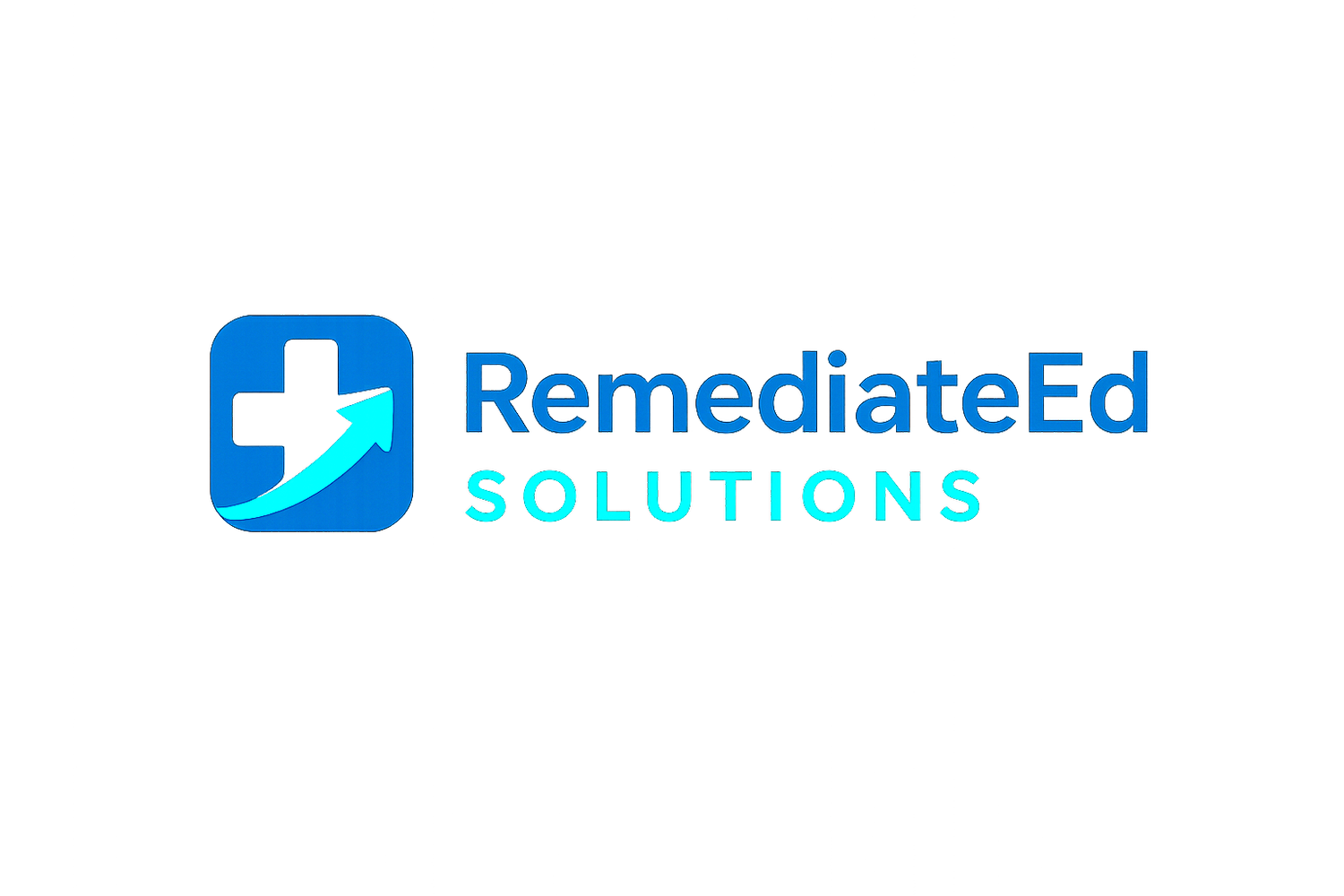Frequently Asked Questions
Welcome to RemediateEd Solutions. We specialize in providing structured, individualized remediation support to Physician Assistant (PA) programs and their students. Our approach is grounded in evidence-based studies, including various remediation frameworks.
What types of challenges do you help address?
We provide remediation for a wide range of academic and professional concerns commonly encountered in PA education. These include:
Clinical Reasoning: Strengthening diagnostic thinking, patient assessment, and decision-making skills.
Medical Knowledge: Addressing content gaps, board preparation, and foundational sciences review.
Professionalism: Improving communication, accountability, teamwork, and professional behavior.
Time Management & Organization: Building study plans, test-taking strategies, and clinical rotation readiness.
Clinical Skills: Reinforcing history taking, physical exam techniques, documentation, and patient interaction.
Self-Directed Learning: Developing strategies for independent growth, reflection, and resilience.
How do you structure the remediation process?
Our framework is built around an evidence-based remediation model:
Identification of Deficits – We work with programs and students to pinpoint the specific areas of concern.
Targeted Intervention – Customized learning plans are created for each domain (e.g., clinical reasoning, knowledge, professionalism).
Active Practice & Feedback – Students engage in deliberate practice, with ongoing feedback and guided reflection.
Assessment of Progress – Progress is measured through case-based learning, knowledge checks, or observed skills.
Transition Back to Independence – Support gradually tapers as students demonstrate competency and confidence.
Who can benefit from your services?
PA Students: Those struggling academically, on probation, preparing for remediation plans, or re-entering after a leave of absence.
PA Programs: Faculty and directors seeking structured remediation frameworks, external support for at-risk students, or consultation on best practices.
How is this different from tutoring?
While tutoring often focuses only on knowledge gaps, remediation addresses the underlying causes of performance difficulties. This may include clinical reasoning, professionalism, study skills, or wellness. We provide a holistic, structured plan that aligns with national accreditation expectations and supports long-term success.
Do you work with PA programs directly or with students individually?
Both.
PA Programs can contract with us to provide tailored remediation plans for students, faculty consultation, or ongoing academic support systems.
Individual Students can also seek support with permission from their program, especially if they are required to complete structured remediation.
Are your remediation methods aligned with accreditation standards?
Yes. Our frameworks are aligned with ARC-PA standards and grounded in published, evidence-based strategies. We help programs maintain compliance while ensuring fair, supportive, and consistent remediation practices.
How long does remediation usually take?
Remediation timelines vary based on the identified needs. Some students may only require a few structured sessions, while others benefit from longitudinal support across a term or rotation. We work closely with programs to define clear goals and timelines.
What outcomes can be expected?
Our goal is to help students:
Improve competency in targeted domains.
Increase confidence and independence.
Reduce risk of future academic or professional difficulties.
Successfully progress within their PA program and into clinical practice.
How do you define and measure success from a PA program’s perspective?
We recognize that measurable outcomes are essential for PA programs to ensure both student success and compliance with accreditation standards. Our remediation process includes clear benchmarks and outcome tracking in the following domains:
Academic Performance: Improvements in internal exam scores, end-of-rotation assessments, and first-time PANCE pass rates.
Clinical Skills: Higher competency ratings in OSCEs, preceptor evaluations, and documentation skills.
Professionalism: Stronger evaluations from faculty and preceptors on communication, accountability, and teamwork.
Retention & Graduation: Increased student retention, successful completion of remediation plans, and higher overall graduation rates.
Learner Feedback: Positive student self-assessments and satisfaction surveys demonstrating growth in confidence and readiness.
Program-Level Metrics: Reduction in the number of students requiring repeated remediation and timely completion of remediation plans in line with ARC-PA standards.
By tracking these outcomes, PA programs can ensure that remediation is not only supportive for the learner but also effective, consistent, and aligned with national accreditation expectations.
How do I get started?
PA Programs: Contact us to discuss your remediation needs, referral process, and partnership options.
Students: Speak with your program about remediation support through RemediateEd Solutions, or contact us directly to learn more about our services.
